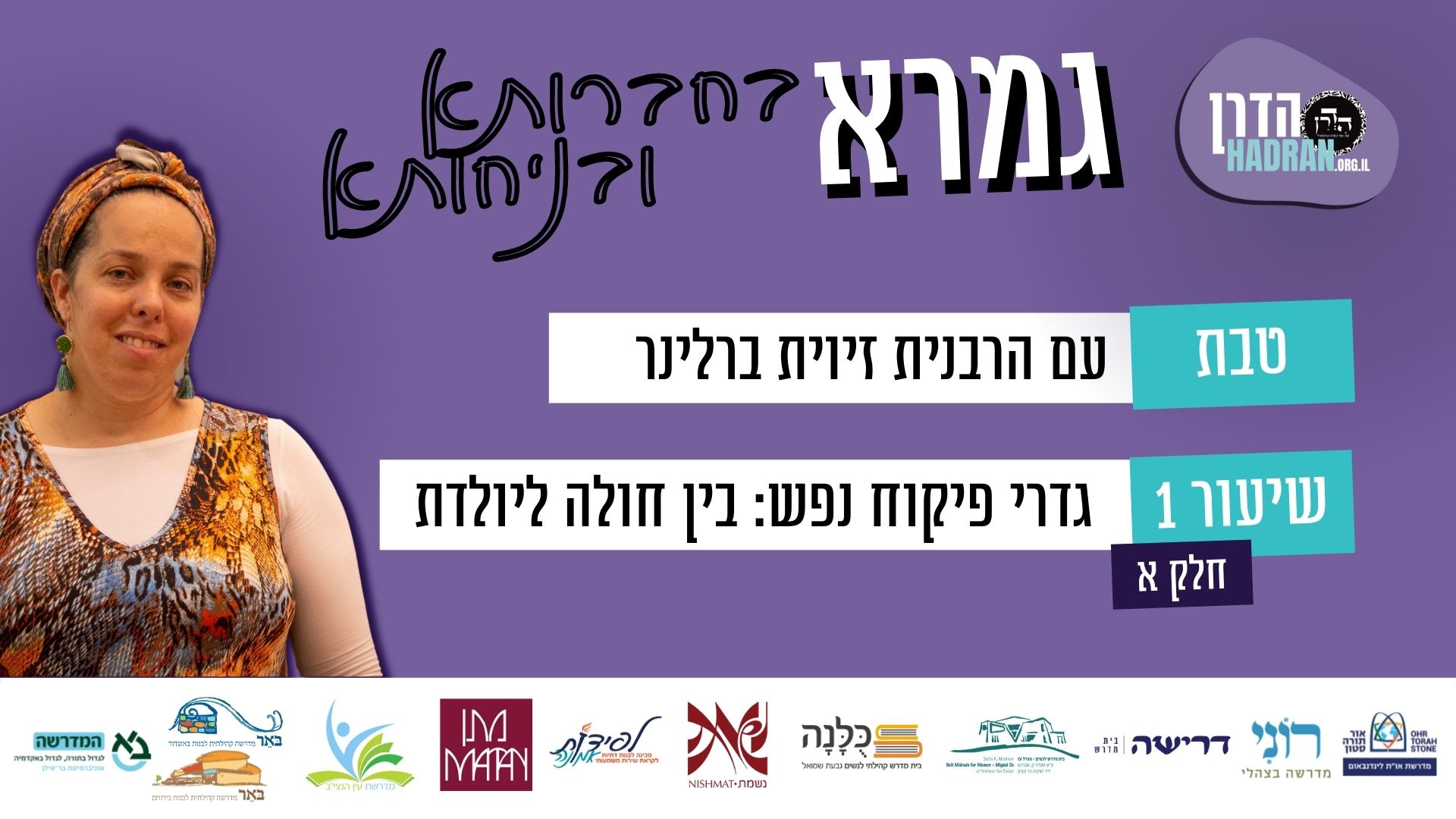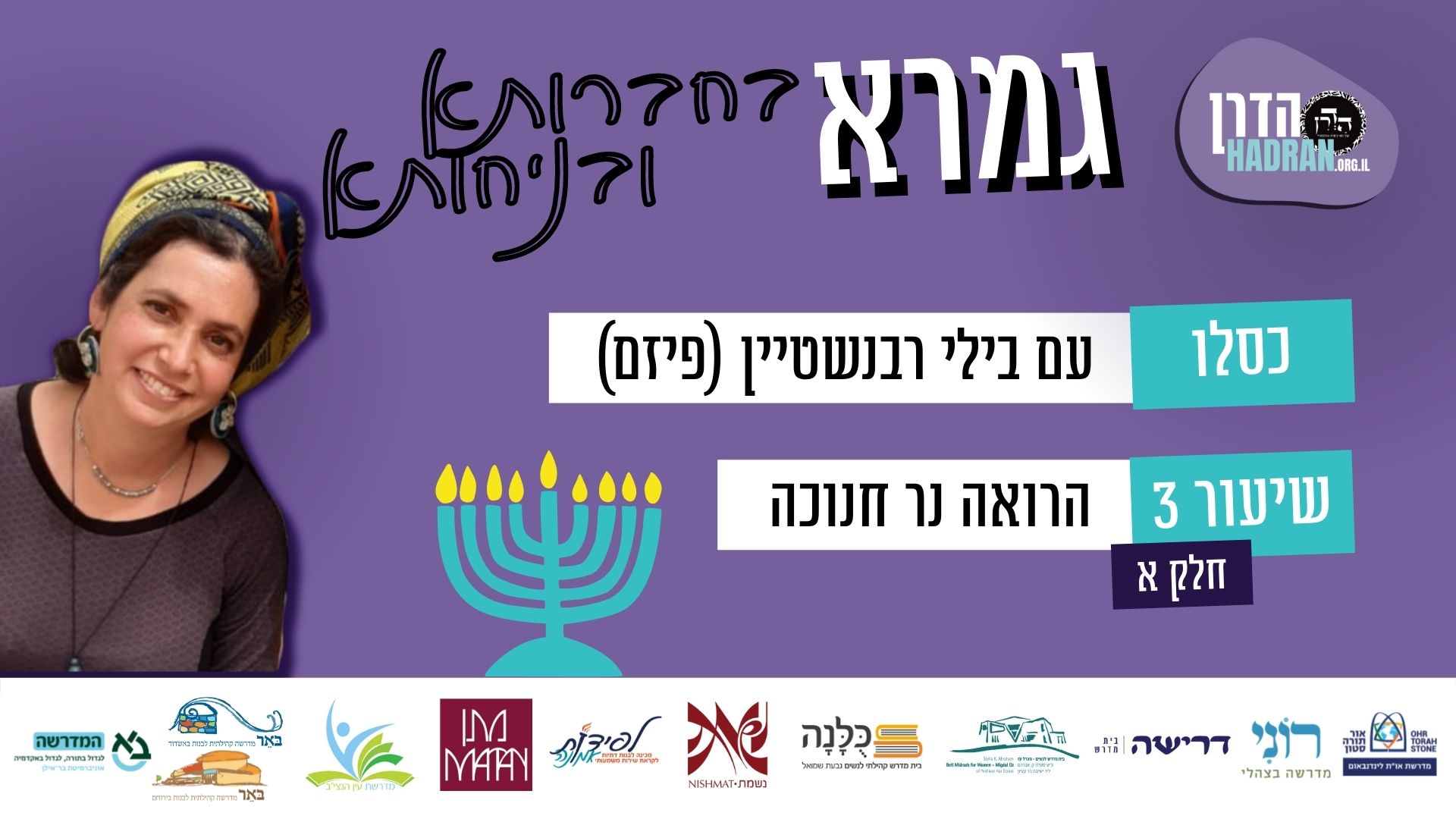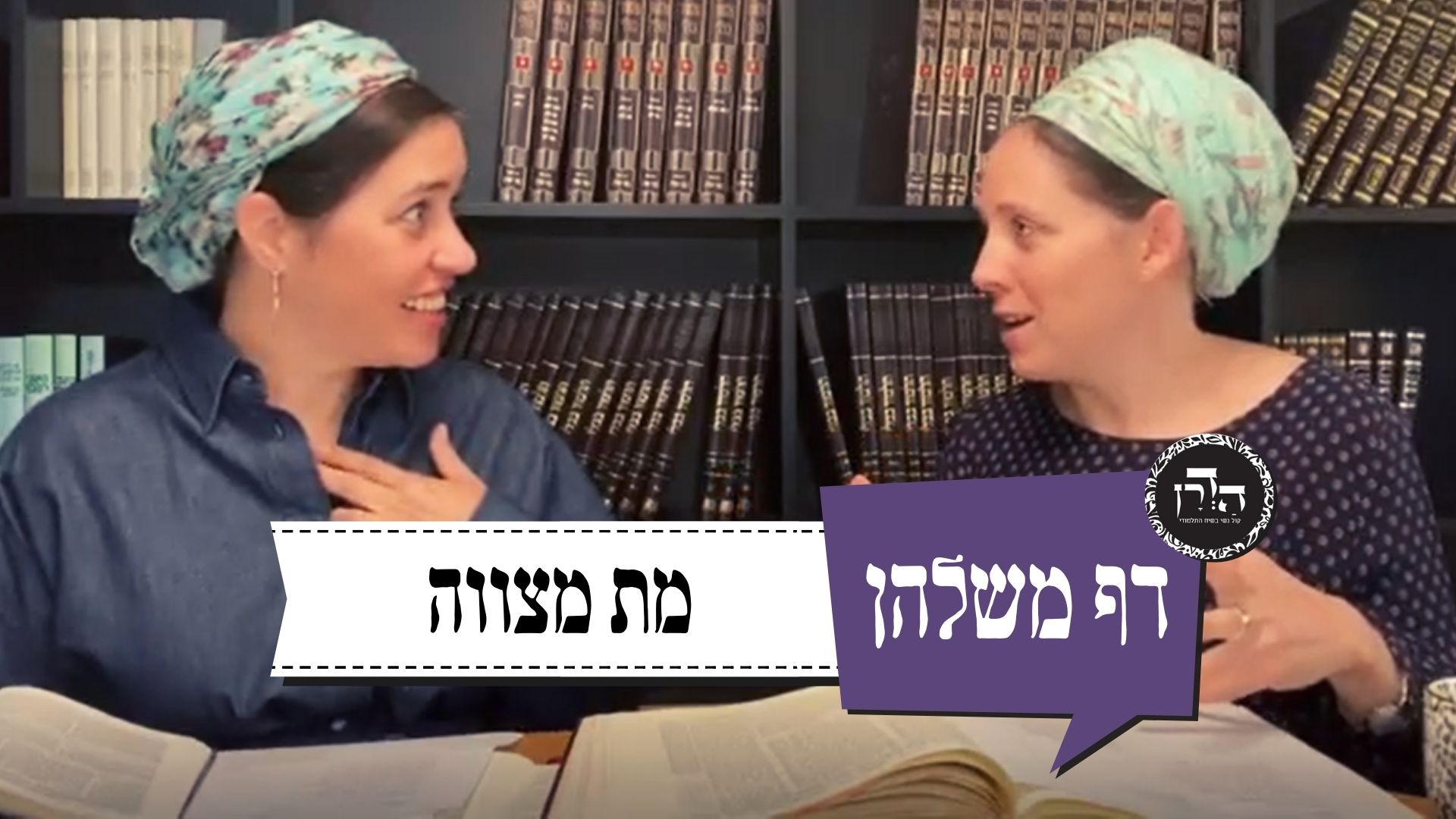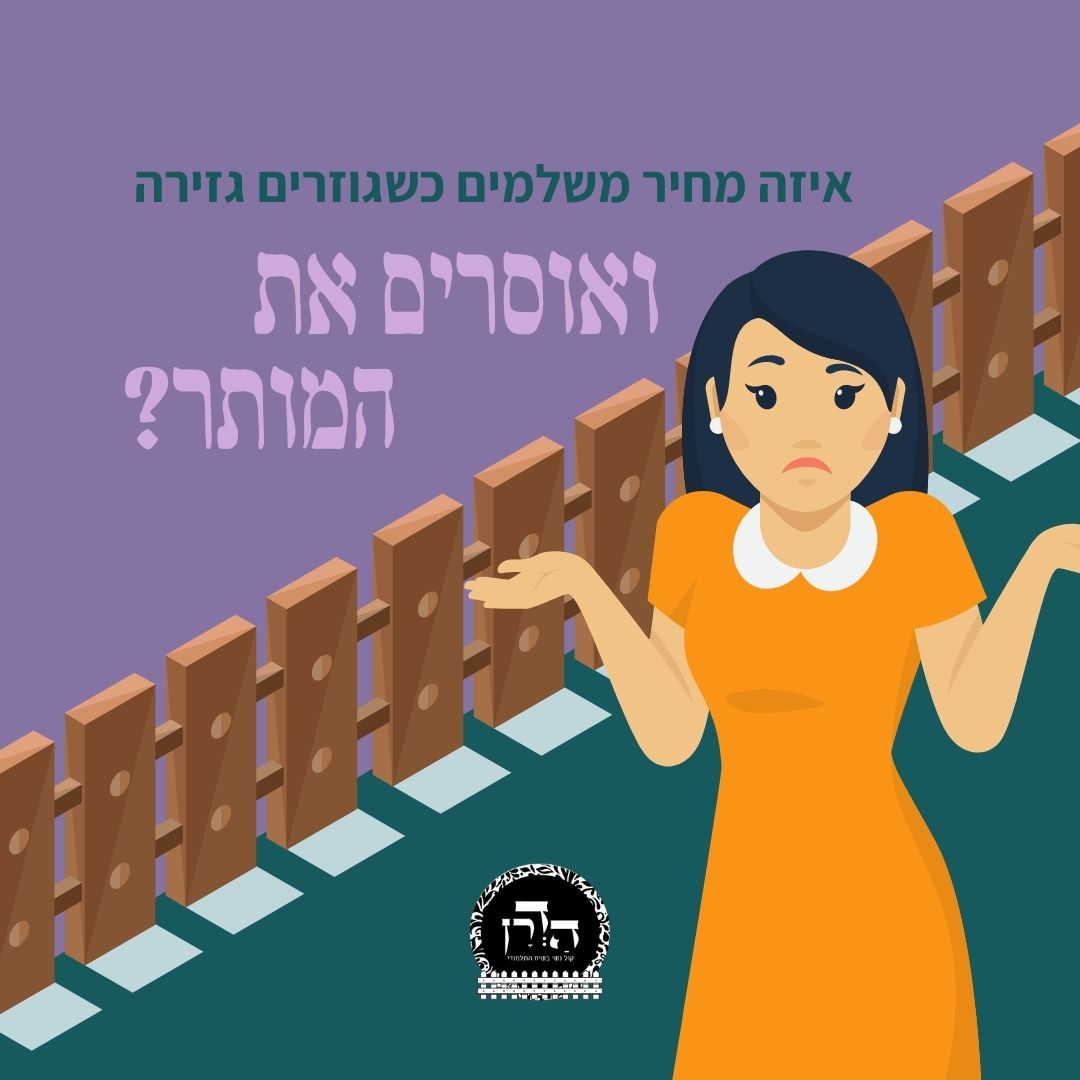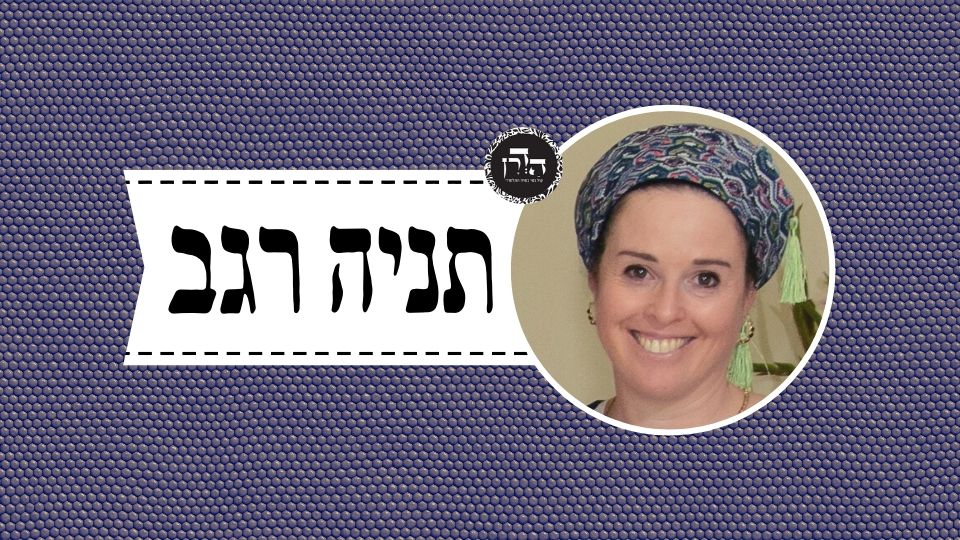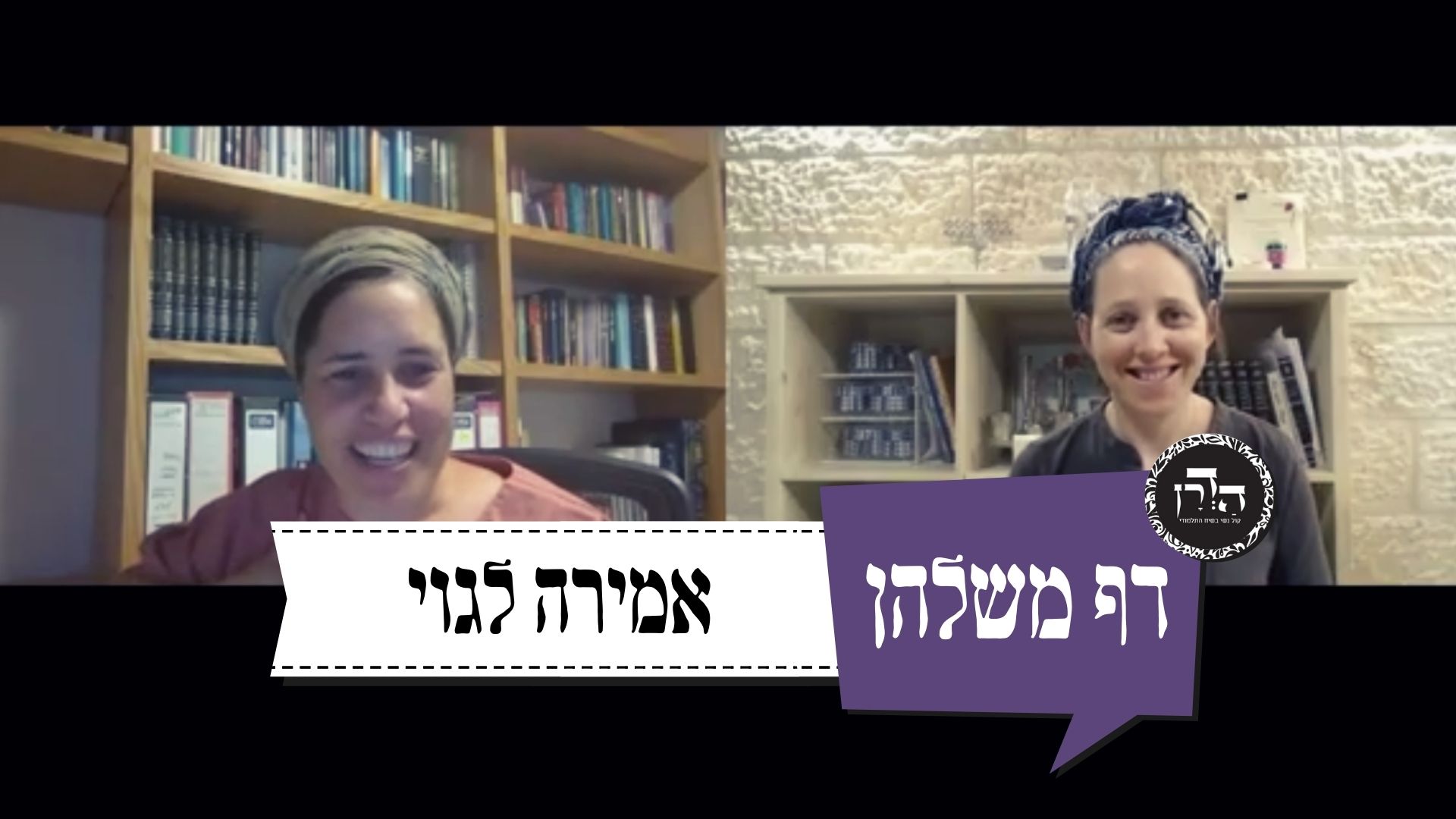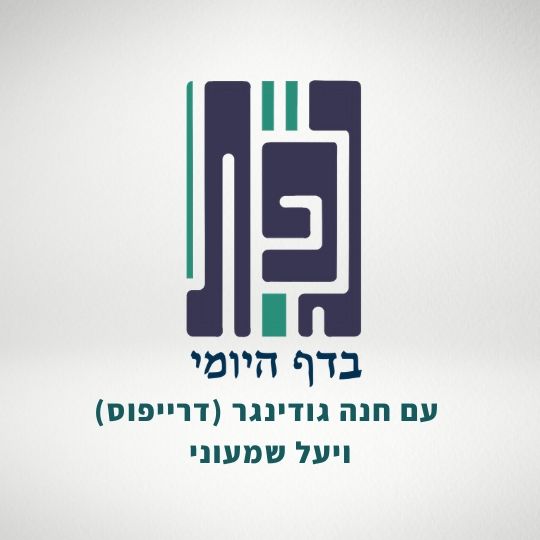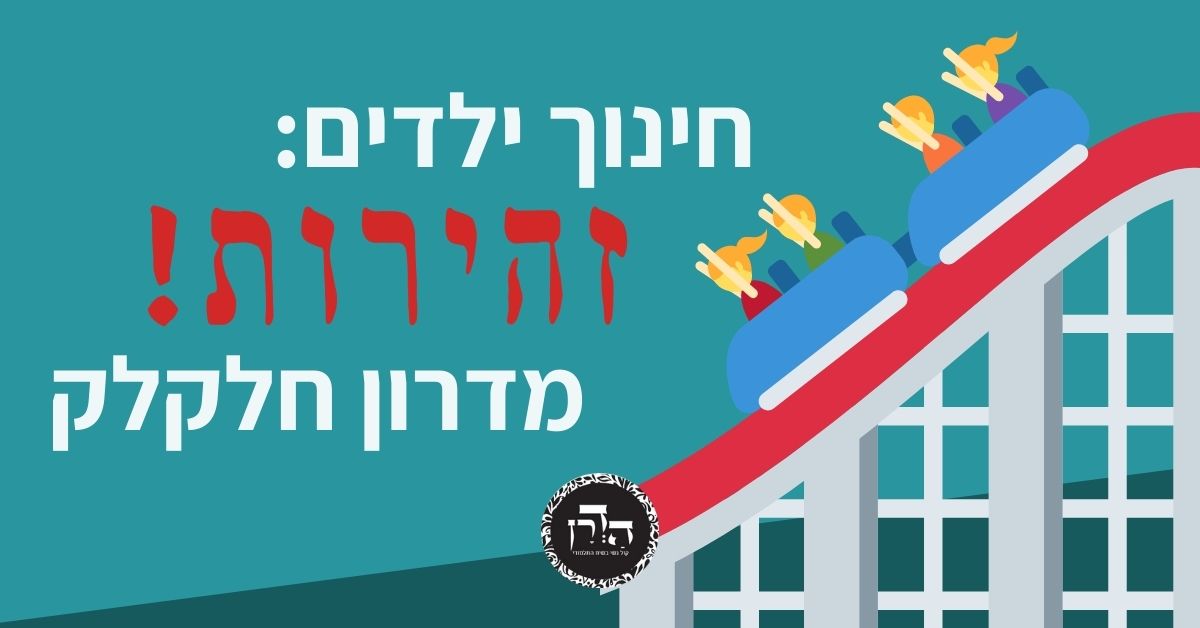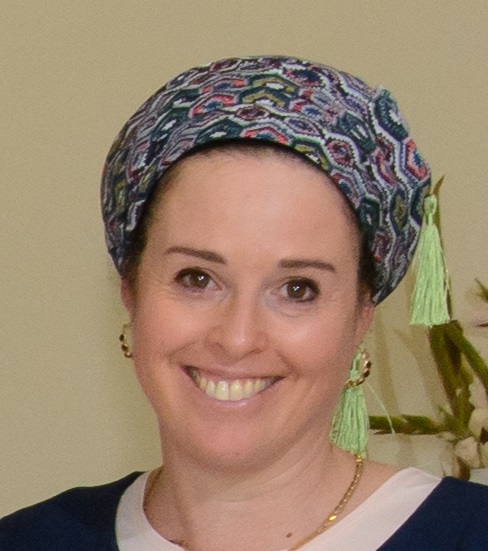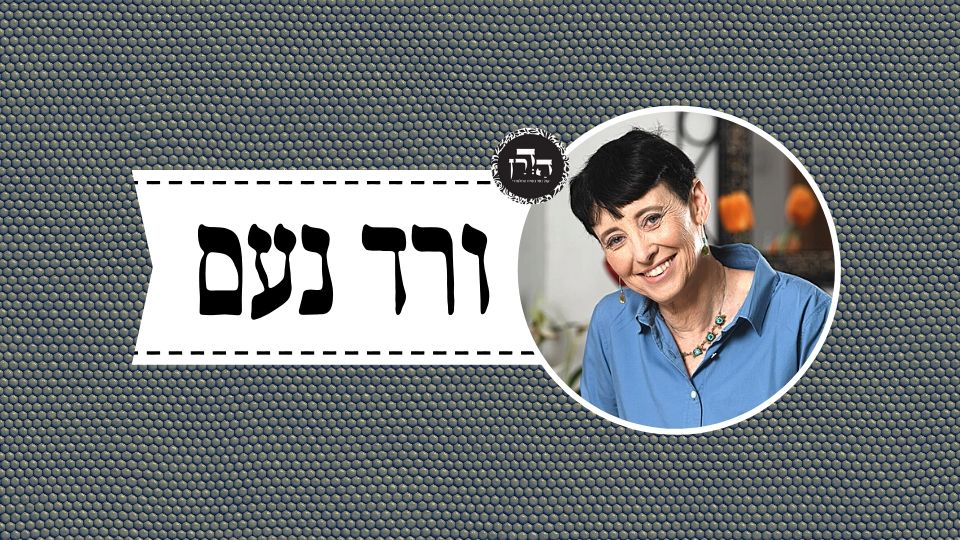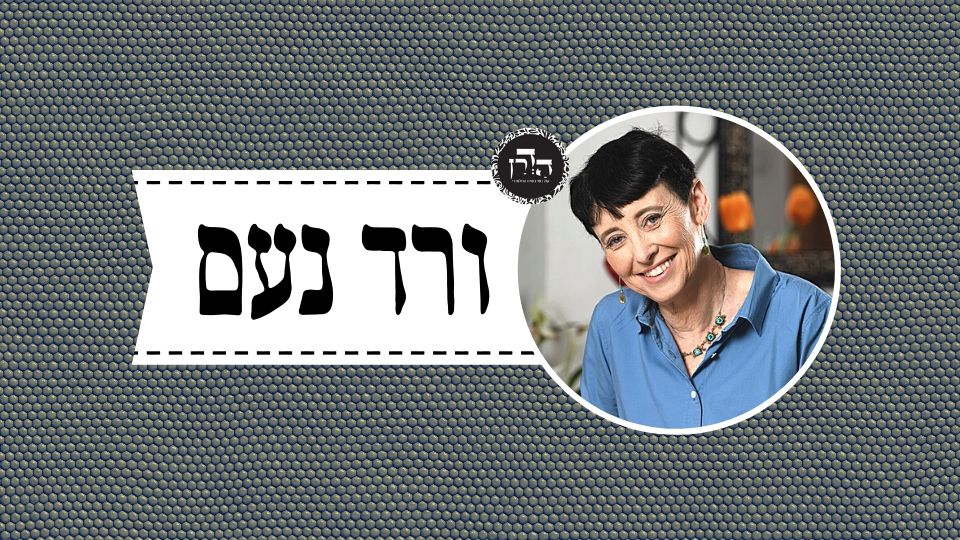שבת פז
בִּתְלָתָא אֲמַר לְהוּ מִצְוַת הַגְבָּלָה; בְּאַרְבְּעָה עֲבוּד פְּרִישָׁה. וְרַבָּנַן סָבְרִי — בִּתְרֵי בְּשַׁבָּא אִיקְּבַע יַרְחָא, בִּתְרֵי בְּשַׁבָּא לָא אֲמַר לְהוּ וְלָא מִידֵּי מִשּׁוּם חוּלְשָׁא דְאוֹרְחָא; בִּתְלָתָא אֲמַר לְהוּ: ״וְאַתֶּם תִּהְיוּ לִי״; בְּאַרְבְּעָה אֲמַר לְהוּ מִצְוַת הַגְבָּלָה; בְּחַמְשָׁא עֲבוּד פְּרִישָׁה. מֵיתִיבִי: ״וְקִדַּשְׁתָּם הַיּוֹם וּמָחָר״, קַשְׁיָא לְרַבִּי יוֹסֵי!
On the third day of the week, God said to them the mitzva of setting boundaries around Mount Sinai. On the fourth day of the week, the husbands and wives separated from one another. And the Rabbis hold: On the second day of the week the New Moon was established, and on the second day of the week God did not say anything to them due to the weariness caused by their journey. On the third day of the week, God said to them: “And you shall be to Me a kingdom of priests and a holy nation; these are the words that you shall speak to the children of Israel” (Exodus 19:6). On the fourth day of the week, God said to them the mitzva of setting boundaries around Mount Sinai. On the fifth day of the week, the husbands and wives separated from one another. The Gemara raises an objection: Doesn’t the verse state: “And the Lord said to Moses: Go to the people and sanctify them today and tomorrow and let them wash their garments” (Exodus 19:10), indicating that the husbands and wives were separated for only two days? This is difficult according to the opinion of Rabbi Yosei, who said earlier that the separation was for three days.
אָמַר לְךָ רַבִּי יוֹסֵי: יוֹם אֶחָד הוֹסִיף מֹשֶׁה מִדַּעְתּוֹ. דְּתַנְיָא: שְׁלֹשָׁה דְּבָרִים עָשָׂה מֹשֶׁה מִדַּעְתּוֹ, וְהִסְכִּים הַקָּדוֹשׁ בָּרוּךְ הוּא עִמּוֹ. הוֹסִיף יוֹם אֶחָד מִדַּעְתּוֹ, וּפֵירַשׁ מִן הָאִשָּׁה, וְשָׁבַר אֶת הַלּוּחוֹת.
The Gemara answers: Rabbi Yosei could have said to you: Moses added one day to the number of days that God commanded based on his own perception, as it was taught in a baraita: Moses did three things based on his own perception, and the Holy One, Blessed be He, agreed with him. He added one day to the days of separation before the revelation at Sinai based on his own perception. And he totally separated from his wife after the revelation at Sinai. And he broke the tablets following the sin of the Golden Calf.
הוֹסִיף יוֹם אֶחָד מִדַּעְתּוֹ, מַאי דְּרַשׁ? ״הַיּוֹם וּמָחָר״ — הַיּוֹם כְּמָחָר. מָה לְמָחָר לֵילוֹ עִמּוֹ, אַף הַיּוֹם לֵילוֹ עִמּוֹ. וְלַיְלָה דְּהָאִידָּנָא נְפַק לֵיהּ, שְׁמַע מִינַּהּ תְּרֵי יוֹמֵי לְבַר מֵהָאִידָּנָא. וּמְנָלַן דְּהִסְכִּים הַקָּדוֹשׁ בָּרוּךְ הוּא עַל יָדוֹ — דְּלָא שְׁרַאי שְׁכִינָה עַד צַפְרָא דְשַׁבְּתָא.
The Gemara discusses these cases: He added one day based on his own perception. What source did he interpret that led him to do so? He reasoned that since the Holy One, Blessed be He, said: “Sanctify them today and tomorrow,” the juxtaposition of the two days teaches that today is like tomorrow; just as tomorrow the men and women will separate for that day and the night preceding it, so too, today requires separation for the day and the night preceding it. Since God spoke to him in the morning, and the night of that day already passed, Moses concluded: Derive from it that separation must be in effect for two days besides that day. Therefore, he extended the mitzva of separation by one day. And from where do we derive that the Holy One, Blessed be He, agreed with his interpretation? It is derived from the fact that the Divine Presence did not rest upon Mount Sinai until Shabbat morning, as Moses had determined.
וּפֵירַשׁ מִן הָאִשָּׁה, מַאי דְּרַשׁ? נָשָׂא קַל וָחוֹמֶר בְּעַצְמוֹ, אָמַר: וּמָה יִשְׂרָאֵל שֶׁלֹּא דִּבְּרָה שְׁכִינָה עִמָּהֶן אֶלָּא שָׁעָה אַחַת, וְקָבַע לָהֶן זְמַן, אָמְרָה תּוֹרָה: ״וְהָיוּ נְכֹנִים וְגוֹ׳ אַל תִּגְּשׁוּ״. אֲנִי, שֶׁכׇּל שָׁעָה וְשָׁעָה שְׁכִינָה מְדַבֶּרֶת עִמִּי, וְאֵינוֹ קוֹבֵעַ לִי זְמַן — עַל אַחַת כַּמָּה וְכַמָּה. וּמְנָלַן דְּהִסְכִּים הַקָּדוֹשׁ בָּרוּךְ הוּא עַל יָדוֹ? — דִּכְתִיב: ״לֵךְ אֱמֹר לָהֶם שׁוּבוּ לָכֶם לְאׇהֳלֵיכֶם״, וּכְתִיב בָּתְרֵיהּ: ״וְאַתָּה פֹּה עֲמֹד עִמָּדִי״. וְאִית דְּאָמְרִי: ״פֶּה אֶל פֶּה אֲדַבֶּר בּוֹ״.
And he totally separated from his wife after the revelation at Sinai. What source did he interpret that led him to do so? He reasoned an a fortiori inference by himself and said: If Israel, with whom the Divine Presence spoke only one time and God set a specific time for them when the Divine Presence would be revealed, and yet the Torah stated: “Prepare yourselves for three days, do not approach a woman” (Exodus 19:15); I, with whom the Divine Presence speaks all the time and God does not set a specific time for me, all the more so that I must separate from my wife. And from where do we derive that the Holy One, Blessed be He, agreed with him? As it is written after the revelation at Sinai: “Go say to them: Return to your tents” (Deuteronomy 5:26), meaning to your homes and wives. And afterward it is written that God told Moses: “And you, stand here with Me” (Deuteronomy 5:27), indicating that Moses was not allowed to return home, as he must constantly be prepared to receive the word of God. And some say a different source indicating that God agreed with his reasoning. When Aaron and Miriam criticized Moses’ separation from his wife, God said: “With him do I speak mouth to mouth, even manifestly, and not in dark speeches; and the similitude of the Lord does he behold; why then were you not afraid to speak against My servant, against Moses?” (Numbers 12:8). This indicates that God agreed with his reasoning.
שָׁבַר אֶת הַלּוּחוֹת, מַאי דְּרַשׁ? אָמַר: וּמָה פֶּסַח שֶׁהוּא אֶחָד מִתַּרְיָ״ג מִצְוֹת, אָמְרָה תּוֹרָה: ״וְכׇל בֶּן נֵכָר לֹא יֹאכַל בּוֹ״. הַתּוֹרָה כּוּלָּהּ [כָּאן] וְיִשְׂרָאֵל מְשׁוּמָּדִים — עַל אַחַת כַּמָּה וְכַמָּה. וּמְנָלַן דְּהִסְכִּים הַקָּדוֹשׁ בָּרוּךְ הוּא עַל יָדוֹ? — שֶׁנֶּאֱמַר: ״אֲשֶׁר שִׁבַּרְתָּ״, וְאָמַר רֵישׁ לָקִישׁ: יִישַׁר כֹּחֲךָ שֶׁשִּׁבַּרְתָּ.
And he broke the tablets following the sin of the Golden Calf. What source did he interpret that led him to do so? Moses said: With regard to the Paschal lamb, which is only one of six hundred and thirteen mitzvot, the Torah stated: “And the Lord said unto Moses and Aaron: This is the ordinance of the Paschal offering; no alien shall eat of it” (Exodus 12:43), referring not only to gentiles, but to apostate Jews as well. Regarding the tablets, which represented the entire Torah, and Israel at that moment were apostates, as they were worshipping the calf, all the more so are they not worthy of receiving the Torah. And from where do we derive that the Holy One, Blessed be He, agreed with his reasoning? As it is stated: “The first tablets which you broke [asher shibarta]” (Exodus 34:1), and Reish Lakish said: The word asher is an allusion to the phrase: May your strength be true [yishar koḥakha] due to the fact that you broke the tablets.
תָּא שְׁמַע: ״וְהָיוּ נְכֹנִים לַיּוֹם הַשְּׁלִישִׁי״, קַשְׁיָא לְרַבִּי יוֹסֵי. הָא אָמְרִינַן יוֹם אֶחָד הוֹסִיף מֹשֶׁה מִדַּעְתּוֹ. תָּא שְׁמַע: ״שְׁלִישִׁי״ — שְׁלִישִׁי בַּחֹדֶשׁ וּשְׁלִישִׁי בַּשַּׁבָּת, קַשְׁיָא לְרַבָּנַן! אָמְרִי לָךְ רַבָּנַן: הָא מַנִּי — רַבִּי יוֹסֵי הִיא.
Come and hear an additional difficulty from the verse: “And be prepared for the third day, for on the third day God will descend onto Mount Sinai before the eyes of the entire nation” (Exodus 19:11). This indicates that God said that the Torah would be given on the third day after two days of separation. This is difficult according to the opinion of Rabbi Yosei. The Gemara answers: Didn’t we say that Moses added one day based on his own perception? Come and hear a proof against this from what was taught in a baraita. That which is stated in the Torah: “For on the third day,” means the third day of the month and the third day of the week. Apparently, the New Moon was on Sunday. This is difficult according to the opinion of the Rabbis. The Gemara answers: The Rabbis could have said to you: Whose is the opinion in this baraita? It is the opinion of Rabbi Yosei. Therefore, this baraita poses no difficulty to the opinion of the Rabbis.
שְׁלִישִׁי לְמַאי? לְכִדְתַנְיָא: ״וַיָּשֶׁב מֹשֶׁה אֶת דִּבְרֵי הָעָם אֶל ה׳״, וּכְתִיב: ״וַיַּגֵּד מֹשֶׁה אֶת דִּבְרֵי הָעָם אֶל ה׳״.
According to the opinion of the Rabbis, that day was the third day of what reckoning? As it was taught in a baraita: It is written: “And Moses reported the words of the people to the Lord” (Exodus 19:8). And it is written immediately thereafter: “And God said to Moses: Behold I will come to you in a thick cloud so that the people will hear when I speak with you, and they will also believe in you forever. And Moses told the words of the people to the Lord” (Exodus 19:9).
מָה אָמַר לוֹ הַקָּדוֹשׁ בָּרוּךְ הוּא לְמֹשֶׁה, וּמָה אָמַר לָהֶם מֹשֶׁה לְיִשְׂרָאֵל, וּמָה אָמְרוּ יִשְׂרָאֵל לְמֹשֶׁה, וּמָה הֵשִׁיב מֹשֶׁה לִפְנֵי הַגְּבוּרָה? זוֹ מִצְוַת הַגְבָּלָה, דִּבְרֵי רַבִּי יוֹסֵי בַּר יְהוּדָה. רַבִּי אוֹמֵר: בַּתְּחִילָּה פֵּירֵשׁ עוֹנְשָׁהּ, דִּכְתִיב: ״וַיָּשֶׁב מֹשֶׁה״ — דְּבָרִים שֶׁמְּשַׁבְּבִין דַּעְתּוֹ שֶׁל אָדָם, וּלְבַסּוֹף פֵּירֵשׁ מַתַּן שְׂכָרָהּ, דִּכְתִיב: ״וַיַּגֵּד מֹשֶׁה״ — דְּבָרִים שֶׁמּוֹשְׁכִין לִבּוֹ שֶׁל אָדָם כְּאַגָּדָה. וְאִיכָּא דְאָמְרִי: בַּתְּחִילָּה פֵּירֵשׁ מַתַּן שְׂכָרָהּ, דִּכְתִיב: ״וַיָּשֶׁב מֹשֶׁה״ — דְּבָרִים שֶׁמְּשִׁיבִין דַּעְתּוֹ שֶׁל אָדָם, וּלְבַסּוֹף פֵּירֵשׁ עוֹנְשָׁהּ, דִּכְתִיב: ״וַיַּגֵּד מֹשֶׁה״ — דְּבָרִים שֶׁקָּשִׁין לָאָדָם כְּגִידִּין.
The Gemara asks: What did the Holy One, Blessed be He, say to Moses, and what did Moses say to Israel, and what did Israel say to Moses, and what did Moses report to the Almighty? The verses do not elaborate on the content of God’s command to Moses, which Moses then told the people and which they accepted. It must be that this refers to the mitzva of setting boundaries, which Moses told the people and which they accepted. He then went back and reported to God that the people accepted the mitzva; this is the statement of Rabbi Yosei bar Yehuda. Rabbi Yehuda HaNasi says: At first, he explained the punishment and the hardship involved in receiving the Torah, as it is written: “And Moses reported [vayashev],” which is interpreted homiletically as: Matters that shatter [meshabbevin] (Rav Hai Gaon) a person’s mind; and, ultimately, he explained its reward, as it is written: “And Moses told [vayagged],” which is interpreted homiletically as: Matters that draw a person’s heart like aggada. And some say that at first, he explained its reward, as it is written: “And Moses reported,” which is interpreted homiletically as: Matters that restore [meshivin] and calm a person’s mind; and ultimately, he explained its punishment, as it is written: “And Moses told,” matters that are as difficult for a person as wormwood [gidin].
תָּא שְׁמַע: ״שִׁשִּׁי״ — שִׁשִּׁי בַּחוֹדֶשׁ, שִׁשִּׁי בַּשַּׁבָּת, קַשְׁיָא לְרַבָּנַן! הָא נָמֵי רַבִּי יוֹסֵי הִיא. שִׁשִּׁי לְמַאי? רָבָא אָמַר:
Come and hear a proof from that which was taught in a baraita: The sixth was the sixth day of the month and the sixth day of the week. This is also difficult according to the opinion of the Rabbis. The Gemara answers: This baraita is also according to the opinion of Rabbi Yosei. But if so, according to the opinion of the Rabbis, that day was the sixth day of what reckoning? Rava said:
לַחֲנִיָּיתָן, רַב אַחָא בַּר יַעֲקֹב אָמַר: לְמַסָּעָן. וְקָמִיפַּלְגִי בְּשַׁבָּת דְּמָרָה. דִּכְתִיב: ״כַּאֲשֶׁר צִוְּךָ ה׳ אֱלֹהֶיךָ״, וְאָמַר רַב יְהוּדָה אָמַר רַב: ״כַּאֲשֶׁר צִוְּךָ״ — בְּמָרָה. מָר סָבַר: אַשַּׁבָּת אִיפְּקוּד, אַתְּחוּמִין לָא אִיפְּקוּד. וּמָר סָבַר: אַתְּחוּמִין נָמֵי אִיפְּקוּד.
the sixth day from their encampment. Rav Aḥa bar Ya’akov said: The sixth day from the start of their journey. They left Refidim and arrived and camped in the desert on the same Sunday. And Rava and Rav Aḥa bar Ya’akov disagree with regard to the mitzva of Shabbat commanded to the Jewish people at Mara, as it is written in the fourth commandment: “Observe the Shabbat day to keep it holy as the Lord your God commanded you” (Deuteronomy 5:11). And Rav Yehuda said that Rav said: As He commanded you in Mara, as it is stated: “There He made for him a statute and an ordinance, and there He proved him” (Exodus 15:25). Their dispute was: One Master held: They were commanded about Shabbat, but they were not commanded about Shabbat boundaries. Therefore, it was permitted to travel from Refidim on Shabbat, because the restriction of Shabbat boundaries was not yet in effect. And one Master held: They were also commanded about the boundaries, and therefore, it was prohibited to leave Refidim on Shabbat.
תָּא שְׁמַע: נִיסָן שֶׁבּוֹ יָצְאוּ יִשְׂרָאֵל מִמִּצְרַיִם, בְּאַרְבָּעָה עָשָׂר שָׁחֲטוּ פִּסְחֵיהֶם, וּבַחֲמִשָּׁה עָשָׂר יָצְאוּ, וְלָעֶרֶב לָקוּ בְּכוֹרוֹת. לָעֶרֶב סָלְקָא דַּעְתָּךְ?! אֶלָּא: מִבָּעֶרֶב לָקוּ בְּכוֹרוֹת, וְאוֹתוֹ הַיּוֹם חֲמִישִׁי בַּשַּׁבָּת הָיָה. מִדַּחֲמֵיסַר בְּנִיסָן חַמְשָׁא בְּשַׁבָּא, רֵישׁ יַרְחָא דְאִיָּיר שַׁבְּתָא, וְרֵישׁ יַרְחָא דְסִיוָן חַד בְּשַׁבָּת, קַשְׁיָא לְרַבָּנַן!
Come and hear an additional proof with regard to the day of the revelation at Sinai from what was taught in a baraita: In the month of Nisan during which the Jewish people left Egypt, on the fourteenth, they slaughtered their Paschal lambs; on the fifteenth, they left Egypt; and in the evening, the firstborn were stricken. The Gemara asks: Does it enter your mind to say that they were stricken in the evening? Was the Plague of the Firstborn after the Jews left Egypt? Rather, say that the evening before, the firstborn were stricken. And that day was the fifth day of the week. From the fact that the fifteenth of Nisan was a Thursday, the New Moon of Iyyar was Shabbat, as Nisan is typically thirty days long. And the New Moon of Sivan was on the first day of the week, as Iyyar is typically twenty-nine days long. This is difficult according to the opinion of the Rabbis, who hold that the New Moon of Sivan that year was on Monday.
אָמְרִי לָךְ רַבָּנַן: אִיָּיר דְּהַהִיא שַׁתָּא עַבּוֹרֵי עַבְּרוּהּ. תָּא שְׁמַע דְּלָא עַבְּרוּהּ נִיסָן שֶׁבּוֹ יָצְאוּ יִשְׂרָאֵל מִמִּצְרַיִם: בְּאַרְבָּעָה עָשָׂר שָׁחֲטוּ פִּסְחֵיהֶם, בַּחֲמִשָּׁה עָשָׂר יָצְאוּ, וְלָעֶרֶב לָקוּ בְּכוֹרוֹת. לָעֶרֶב סָלְקָא דַּעְתָּךְ?! אֶלָּא אֵימָא: מִבָּעֶרֶב לָקוּ בְּכוֹרוֹת. וְאוֹתוֹ הַיּוֹם חֲמִישִׁי בַּשַּׁבָּת הָיָה. הִשְׁלִים נִיסָן וְאֵירַע אִיָּיר לִהְיוֹת בַּשַּׁבָּת.
The Gemara answers: The Rabbis could have said to you that a day was added to Iyyar that year and it was thirty days long. The New Moon was determined by testimony of witnesses who saw the new moon, together with astronomical calculations that the testimony was feasible. Therefore, Iyyar could be thirty days long. If that was the case, the New Moon of Sivan was on Monday. Come and hear an objection from what was taught in a different baraita that they did not add a day to Iyyar that year, as the Sages taught: In the month of Nisan during which the Jewish people left Egypt, on the fourteenth, they slaughtered their Paschal lambs; on the fifteenth, they left Egypt; and in the evening, the firstborn were stricken. The Gemara asks: Does it enter your mind to say that they were stricken in the evening? Was the Plague of the Firstborn after the Jews left Egypt? Rather, say that the evening before, the firstborn were stricken. And that day was the fifth day of the week. Nisan was complete, i.e., it was thirty days long, and the New Moon of Iyyar occurred on a Shabbat.
חָסַר אִיָּיר, וְאֵירַע סִיוָן לִהְיוֹת בְּאֶחָד בַּשַּׁבָּת — קַשְׁיָא לְרַבָּנַן! הָא מַנִּי — רַבִּי יוֹסֵי הִיא.
Iyyar was lacking, i.e., it was twenty-nine days long, and the New Moon of Sivan occurred on the first day of the week. This is difficult according to the opinion of the Rabbis. The Gemara answers: Whose is the opinion in this baraita? It is the opinion of Rabbi Yosei. Therefore, this baraita poses no difficulty to the opinion of the Rabbis.
אָמַר רַב פָּפָּא, תָּא שְׁמַע: ״וַיִּסְעוּ מֵאֵלִים וַיָּבֹאוּ כׇּל עֲדַת בְּנֵי יִשְׂרָאֵל וְגוֹ׳ בַּחֲמִשָּׁה עָשָׂר יוֹם לַחֹדֶשׁ הַשֵּׁנִי״. וְאוֹתוֹ הַיּוֹם שַׁבָּת הָיָה, דִּכְתִיב: ״וּבֹקֶר וּרְאִיתֶם אֶת כְּבוֹד ה׳״, וּכְתִיב: ״שֵׁשֶׁת יָמִים תִּלְקְטֻהוּ״. וּמִדַּחֲמֵיסַר בְּאִיָּיר שַׁבְּתָא, רֵישׁ יַרְחָא דְסִיוָן חַד בְּשַׁבָּא, קַשְׁיָא לְרַבָּנַן! אָמְרִי לָךְ רַבָּנַן: אִיָּיר דְּהַהִיא שַׁתָּא עַבּוֹרֵי עַבְּרוּהּ.
Rav Pappa said: Come and hear a different proof from another verse, as it is stated: “And they took their journey from Elim, and all the congregation of the children of Israel came unto the wilderness of Sin, which is between Elim and Sinai, on the fifteenth day of the second month after their departing out of the land of Egypt” (Exodus 16:1). And that day was Shabbat, as it is written: “And in the morning, then you shall see the glory of the Lord; for He has heard your murmurings against the Lord; and what are we, that you murmur against us?” (Exodus 16:7). The next day the glory of God was revealed, and He told them that in the afternoon the manna and quail would begin to fall, and it is written: “Six days you shall gather it; but on the seventh day is Sabbath, there shall be none in it” (Exodus 16:26). Apparently, the first six days after this command were weekdays on which the manna fell, and the fifteenth of Iyyar was Shabbat. And from the fact that the fifteenth of Iyyar was Shabbat, the New Moon of Sivan was on the first day of the week. This is difficult according to the opinion of the Rabbis. The Gemara answers: According to the Rabbis, a day was added to Iyyar that year and it was thirty days long. Therefore, the New Moon of Sivan was on Monday.
אֲמַר לֵיהּ רַב חֲבִיבִי מָחוֹזְנָאָה לְרַב אָשֵׁי, תָּא שְׁמַע: ״וַיְהִי בַּחֹדֶשׁ הָרִאשׁוֹן בַּשָּׁנָה הַשֵּׁנִית בְּאֶחָד לַחֹדֶשׁ הוּקַם הַמִּשְׁכָּן״ — תָּנָא, אוֹתוֹ יוֹם נָטַל עֶשֶׂר עֲטָרוֹת: רִאשׁוֹן לְמַעֲשֵׂה בְרֵאשִׁית; רִאשׁוֹן לַנְּשִׂיאִים; רִאשׁוֹן לַכְּהוּנָּה; רִאשׁוֹן לָעֲבוֹדָה; רִאשׁוֹן לִירִידַת הָאֵשׁ; רִאשׁוֹן לַאֲכִילַת קָדָשִׁים; רִאשׁוֹן לִשְׁכּוֹן שְׁכִינָה; רִאשׁוֹן לְבָרֵךְ אֶת יִשְׂרָאֵל; רִאשׁוֹן לְאִיסּוּר הַבָּמוֹת; רִאשׁוֹן לֶחֳדָשִׁים. וּמִדְּרֵישׁ יַרְחָא דְנִיסָן דְּהָא שַׁתָּא חַד בְּשַׁבָּא — דְּאֶשְׁתָּקַד בְּאַרְבְּעָה.
Rav Ḥavivi from Ḥozena’a said to Rav Ashi: Come and hear a different proof from the following verse: “And it came to pass in the first month in the second year, on the first day of the month, that the Tabernacle was erected” (Exodus 40:17). It was taught: That day took ten crowns. It was the first day of Creation, meaning Sunday, the first day of the offerings brought by the princes, the first day of the priesthood, the first day of service in the Temple, the first time for the descent of fire onto the altar, the first time that consecrated foods were eaten, the first day of the resting of the Divine Presence upon the Jewish people, the first day that the Jewish people were blessed by the priests, and the first day of the prohibition to bring offerings on improvised altars. Once the Tabernacle was erected, it was prohibited to offer sacrifices elsewhere. And it was the first of the months. And from the fact that the New Moon of Nisan of that year was on the first day of the week, in the previous year, it was on the fourth day of the week.
דְּתַנְיָא, אֲחֵרִים אוֹמְרִים: אֵין בֵּין עֲצֶרֶת לַעֲצֶרֶת וְאֵין בֵּין רֹאשׁ הַשָּׁנָה לְרֹאשׁ הַשָּׁנָה אֶלָּא אַרְבָּעָה יָמִים בִּלְבַד, וְאִם הָיְתָה שָׁנָה מְעוּבֶּרֶת — חֲמִשָּׁה. הֲוָה לֵיהּ רֵישׁ יַרְחָא דְאִיָּיר מַעֲלֵי שַׁבְּתָא, וְרֵישׁ יַרְחָא דְסִיוָן שַׁבְּתָא, קַשְׁיָא בֵּין לְרַבִּי יוֹסֵי בֵּין לְרַבָּנַן! לְרַבִּי יוֹסֵי שִׁבְעָה חֲסֵרִין עֲבוּד,
As it was taught in a baraita, Aḥerim say: Between the festival of Assembly, i.e., Shavuot, of one year and the festival of Assembly of the following year, and similarly, between Rosh HaShana of one year and Rosh HaShana of the following year, there is only a difference of four days of the week. And if it was a leap year, there is a difference of five days between them. There are three hundred and fifty four days in a year, which are divided into twelve months, six months that are thirty days long and six months that are twenty-nine days long. If the New Moon of Nisan was on Wednesday, the New Moon of Iyyar was on Shabbat eve, and the New Moon of Sivan was on Shabbat. This is difficult both according to Rabbi Yosei, who holds that the New Moon of Sivan was on Sunday, and according to the Rabbis, who hold it was on Monday. The Gemara answers: Both Rabbi Yosei and the Rabbis disagree with Aḥerim. According to Rabbi Yosei, they established seven months that were lacking in the first year, i.e., seven months that were twenty-nine days long,



